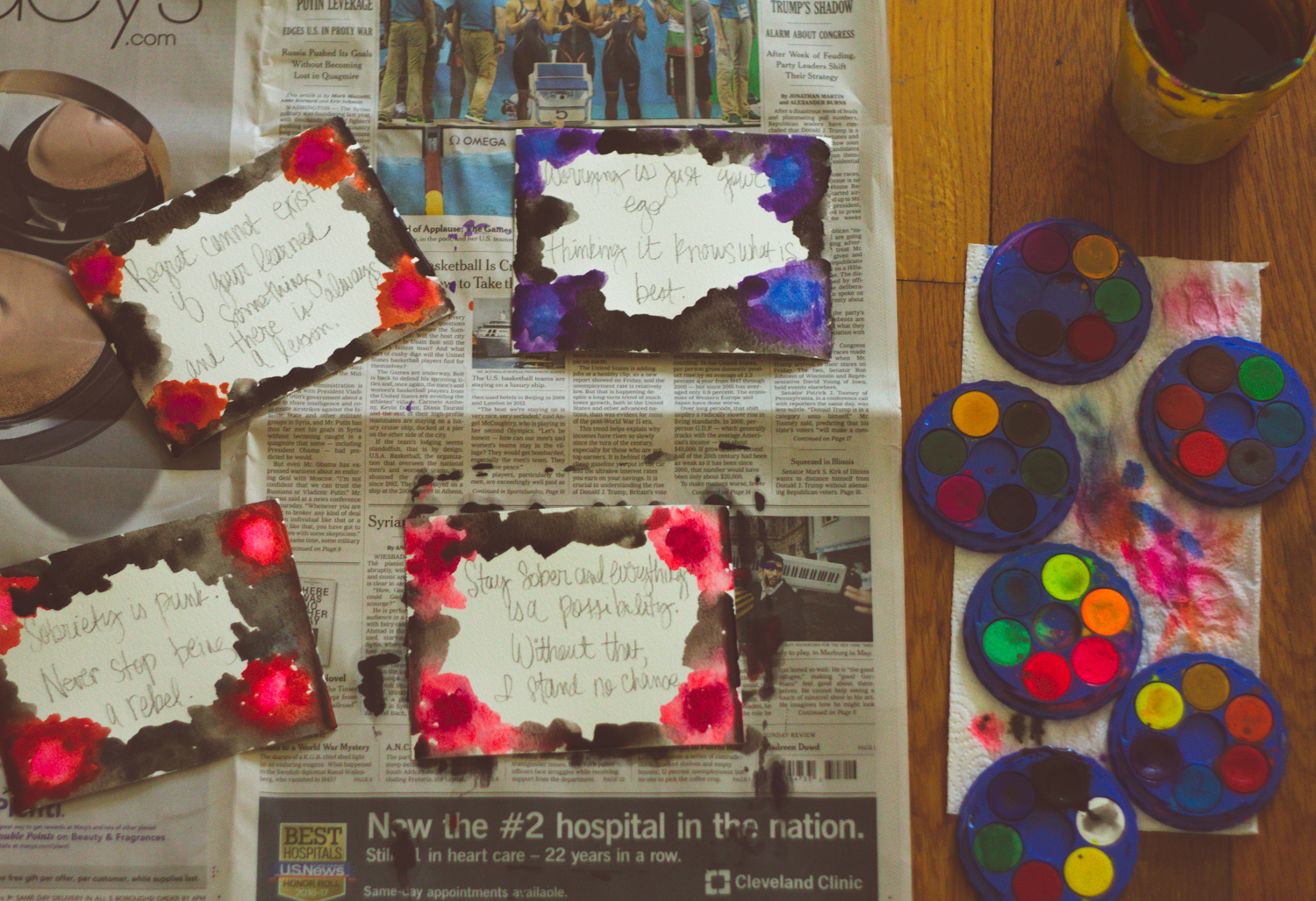Flipping The Story
/Before I start this blog post, will you please join me in a moment of silence followed by A serenity prayer:
God, grant me the serenity to accept that Summer lasts exactly ten weeks, the courage to keep showing up even when I want to run into traffic, and the wisdom to know that in four days, our beautiful routine will return. Amen.
Thanks for that.
When I was a freshman in high school, amidst the early excitement of attending our first football games, my best friend and I immediately noticed the lack of female gender representation on the sidelines. Of course there were the ever-present cheerleaders, or the times that the drill team would descend from their perches on to the field to dazzle the spectators with their swan-like graces, but there were no girls on the field otherwise. It was the 80s in a small East Texas town and I would say that was my first bud of feminism, but if I really think about it, that would be wrong. The fact that women were only Sunday School teachers or in the nursery and never in front of the pulpit in church never sat right with me. And the three words that only the bride had to repeat in every wedding I attended, "love, honor and obey", always, always made me cringe, even as a little girl. So it shouldn't surprise me on reflection that my best friend and I eventually got to work to fix the little sideline problem.
That first season, we convinced the head coach with a very compelling two page letter why he should allow girls to carry water to very thirsty and sweaty football players throughout the game because, hydration. And by the following season, a female athletic coach was hired and she was more than happy to have us. That year, we learned to wrap ankles, knees and *ahem* groins and since we had the longest losing streak in all of 5A high school football at the time (seriously, it was even reported in Time Magazine), we learned how to treat injuries as well. Our team grew and I bet there is a student athletic trainer program at my alma mater to this day.
The reason why I tell this story is because I forgot about it. I forgot I did that. This was way before I even met alcohol, much less shook hands with it and invited it in.
For forever, I beat myself up for working in restaurants for the decades I did. I beat on myself while I was in the trenches and out. I always felt like I was stuck there and it was never ambitious enough. I always had something I was feeding on the side, photography and later designing and sewing, and that would be my optimal career once I caught my elusive lucky break. In hindsight, there is the blinding argument that working in restaurants kept me closer to booze but if I were to flip the story, or even adjust a smidge, the independent agency in me started way back, as evidenced. The few times I did attempt an office job, it always felt like a slow suffocation. And the skills I learned from restaurant jobs are innumerable: thinking on my feet, on-demand-problem-solving, sense of urgency and focus, calm amidst chaos, my best self was almost always revealed, and I know how to not be an asshole to service industry.
This is flipping the story. This is turning an old story that you've hung on to about yourself upside-down, shaking it until some lessons fall out onto the floor for examination. These are things we used to drink over and now that that is no longer a solution, we must change the meaning so we can move on to better solutions. If you would have asked me then, I would have freely told you that I wasn't living up to my potential but I couldn't unstick myself. If anything, booze kept my confidence tethered to its small denominator where I couldn't fully tap into my own resourcefulness to make my other endeavors more successful, but you know what? At that time, that WAS my highest potential. And that is okay.
Inspired by my friend Tammi Salas, I decided to make a few mantras to stick in all the places for when I feel stuck. I used watercolor paper, watercolors and a Sharpie, but use what you have. Go to town. And Pinterest is chock full of hand lettering tutorials and fonts to practice.
I cut my paper into fours and wrote my text out first with a pencil, mostly for placement. I'm not the most prolific visual artist, so I just went with some color combinations I liked and basically made big dots. I like it when the colors bleed into each other, so I used extra water to make that happen. When they were dry, I went back over them with a Sharpie. Not perfect, but perfectly imperfect, as Tammi would say.
When I revisit my stories, I know that I've always been a bit of a rebel. Nothing validates that more now than sobriety. I don't worry about my path anymore because I trust my Higher Power and because I trust my sobriety, the path I am on is the right one. If you are still in the beginnings and are still spinning in the wheels of regret, try shaking out your story. See what falls out.










